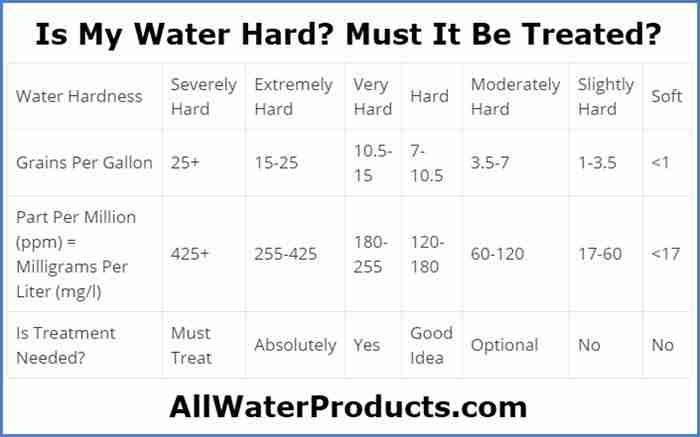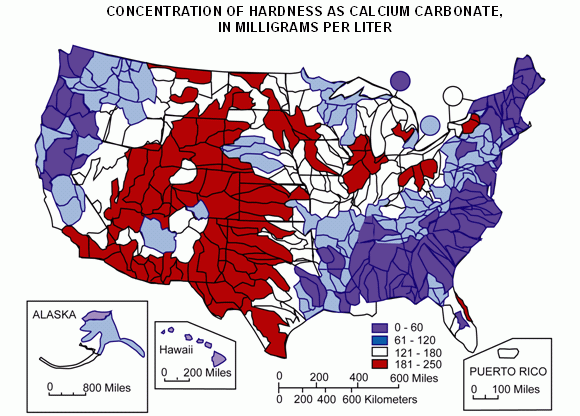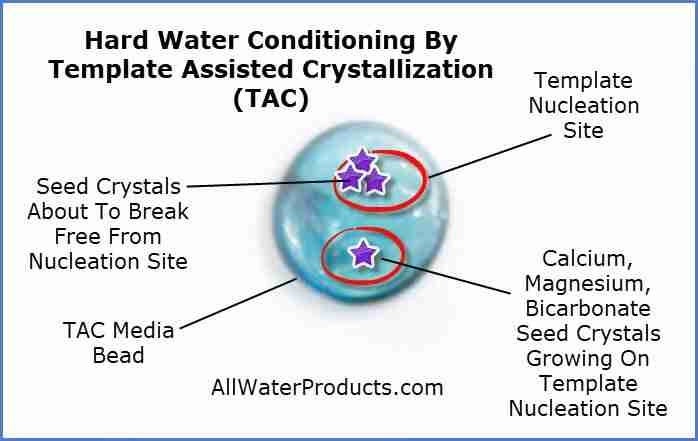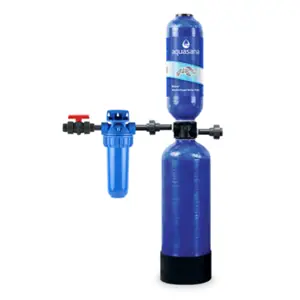Do I really need to buy a tankless water heater filter? Well, yes, you do. Here’s why: Everything in your house that comes into contact with water will be damaged by sediment (sand, clay, silt) and hard water (lime scale) minerals.
Certainly, you don’t want to be drinking sediment or have it in your ice cubes. Also, lime scale buildup inside of your tankless water heater will cost you money and plenty of aggravation.
Table of Contents
Excellent Reasons For Investing In A Tankless Water Heater Filter
Lime scale buildup reduces the efficiency, and can shorten the lifespan of many items in your house. Tankless water heaters are sensitive to the minerals in hard water, as are ice makers, dishwashers, and washing machines.
The heating elements in some appliances are vulnerable to lime scale buildup, such as tankless water heaters and coffee machines.
The buildup on the heat exchanger causes it to work harder to heat the same amount of water. Likewise, a washing machine will require more soap to get clothes clean. This same problem affects many of the working appliances in your home.
Your tankless water heater will greatly benefit from regular maintenance and the cleanest water passing through it. Regular cleanings will help keep lime scale down and eliminate the need for water softeners in your washing machine.
One of the benefits of a tankless water heater over a standard model is that it is more efficient and requires less maintenance. However, it doesn’t deal well with sediment and hard water as well as a standard model does.
The built in sediment filters in some tankless models will trap some particles, but certainly not most of them. You can’t expect a simple screen to replace a dedicated sediment filter. This is why investing in an inline sediment filter for your tankless heater is a good part of home maintenance.
Benefits Of A Sediment Tankless Water Heater Filter
Adding a filter to your tankless water heater system can help keep out those sediment particles that can plug up its screen (if it has one), which will reduce the flow of water.
If your tankless water heater doesn’t have a sediment screen, then your faucet aerator screen will get plugged up.
However, if the sediment is too small to plug up any of the screens, then it winds up in you drinking water, ice cubes, and food. That reminds me of the children’s storybook about stone soup.
Tank heaters deal with incoming sediment through the action of gravity. Where the heavier sediment particles settle to the bottom of the tank. Which then makes thank style heater less energy efficient, and reduces the amount of hot water available.
Also, tank heaters will still perform (with less efficiency) when limescale builds up on them. However, the same amount of limescale in a tankless heater will completely stop the water from flowing.
Hard Water Must Be Treated

A lot of the water we use comes into contact with underground limestone, which is rich in minerals like calcium and magnesium. Hard water is caused by an excess of these dissolved minerals in the water. When the water contains 10 or more grains of these minerals, it’s considered “hard” — and when there are fewer than 3 grains, it’s considered “soft water.”
There are different methods to test how hard the water coming into your house is. Some laboratories use the parts-per-million method. Whereas, others use the grain-per-gallon method. Which dates back to ancient Egypt and is the equivalent (in weight) of one dry grain of wheat.
There’s an easy way to correlate this data. If the water has been tested at parts-per-million (or milligrams-per-liter), just divide by 17 to get the hardness in grains-per-gallon.
For example, water that has hardness at 200 parts per million has approximately 11.7 grains of hard minerals.

Sediment Is What You Call Dirt
The definition for sediment and dirt are different, but most people don’t care about that.
If you get your water from a municipal water source you will get some sediment, but not as much as you get from well water. It appears as a sandy, grainy substance at the bottom of the tank heaters. Sediment buildup can ruin your water heater over time.
Unfortunately, since tankless heaters don’t store water, sediment passes through as water is drawn. This can lead to a number of problems, including harder water, damage to the heater (abrasion), and potential clogs in your faucet aerators and drains.
While having cloudy water (hard water minerals) out of the tap is often harmless, if it’s sediment, you probably don’t want to be drinking it.
The best thing you can do to protect your tankless heater is to add a sediment filter, and a water conditioner that prevents hard water limescale.
The process isn’t difficult, and the cost will more than pay for itself over time by reducing the amount of damage your heater faces. Also, your other water using appliances will be protected too.
Scale, Limescale, Mineral Deposits – It’s All The Same
Have you noticed a crusty white substance on your showerhead or faucet? That is limescale; calcium and magnesium deposits that accumulate on metal parts like faucets and pipes.
Many of your home appliances are susceptible to lime scale buildup; especially those that deal with running water.
Scale is caused by the buildup of dissolved limestone which is often just referred to as calcium. Actually, there are two basic kinds of limestone. The less common one is nearly pure calcium carbonate. The more common limestone is about 80% calcium carbonate and 20% magnesium carbonate.
What’s more is that the smallest amount of limescale can drastically reduce the efficiency of your tankless water heater.
This limescale can build up inside the pipes, water heater, clothes washing machine and dishwasher, which can lead to other issues and even failure of these appliances.
Although not as visible, this same process occurs inside both storage tank and tankless water heaters to varying degrees, depending upon the hardness of the water in your area.
I will explain how this happens and how to eliminate it in a tankless unit.
How Is Limescale Created and How Do I prevent It?
The heat energy created inside a tankless water heater causes the calcium particles to separate from the water and thereby forming scale. These calcium deposits that accumulate on heat exchangers can make it harder for them to create heat and can reduce its efficiency and lifespan if it continues.
Scale buildup makes heat transfer inside tankless water heaters difficult as it takes longer for the water to get hot. Essentially, the calcium acts as insulation on the heating elements. The unit now has to work harder to do the same job it did before which puts more stress on it.
No products found.
An overworked system can give out before it is supposed to, meaning you’ll have to buy another water heater sooner rather than later. It will also use more energy in the meantime meaning higher power consumption.
Since you can’t see the insides of the heating chamber, it’s not easy to detect scale buildup in water heaters. However, many No products found. have scale detection software built-in.
This technology measures changes inside the unit to figure out if there’s too much scale based on the amount of heat transfer. If the heat transfer has slowed down, it will send an error message that indicates it’s time to descale.
For other units that do not have this technology, you will have to rely on your instincts and periodically have a plumber perform a maintenance check on the water heater (yearly).
If your plumber finds scale buildup during maintenance checks he or she can schedule you for a descale treatment. Frequent maintenance will keep your unit working more efficiently for longer periods.
It is recommended to use kitchen-grade vinegar to descale a tankless water heater. Pump it through the system for about an hour or so. It is better to get a local plumber to do it for you. However, if it’s a weekend or a plumber is not available you can make it a do-it-yourself task.
By descaling your tankless water heater, you will dissolve all of the calcium deposits. So, your unit will be fully operational again and running efficiently (good water pressure and consistent flow).
However, you would be much better off preventing the lime scale from ever occurring. That’s where TAC technology comes to the rescue.
What Is TAC and NAC Water Conditioning?
You can extend the life of your water heater by many years if you regularly use an effective hard water treatment to ensure efficiency and maintain water pressure and flow. Consistently treating hard water will prevent failure of your water heater and save you money in repairs.
TAC or Template Assisted Crystallization has proven to be effective at reducing scale formation in plumbing. It’s also called Nucleation Assisted Crystallization (NAC) as it uses a very specialized polymeric treatment media to make nano-crystals.
TAC and NAC provides a nucleation point where the calcium and magnesium carbonate minerals can create nano-crystals. This happens before the minerals can attach to the water heater elements.
These crystals remain loose in the water instead of accumulating on the surfaces of your heating element and plumbing parts.
TAC technology is recommended as a scale prevention method to protect tankless and standard type water heaters, because it is eco-friendly and requires very little maintenance. It is also highly effective at preventing lime scale from corroding electronic parts.
Template Assisted Crystallization (TAC): No Water Softener Needed

Template Assisted Crystallization (TAC) uses Polymeric Beads with nucleation points contained in a standard mineral tank. Water flows through the grainy material inside the tank and is treated.
However, unlike water softeners, they don’t need a regeneration cycle with salt or to be connected to a drain. They need no electronic control system. Also, TAC systems require no maintenance, electricity, or salt which makes them the easiest to set up and install.
They do not remove calcium and magnesium ions from water (as softeners do). However, they change these hardness minerals from their ionic form to a harmless crystalline form. In this very stable form, calcium and magnesium do not attach to pipes, appliances, and fixture surfaces. The crystals are so small, in fact, that they are readily rinsed away by the normal flow of water.
- TAC water conditioners have the ability to clear existing scale from pipes, making it highly beneficial. The micro-crystals of the TAC media grind up and scour away the mineral scale. You could actually unclog an entire year’s worth of scale build-up from your pipes by installing a whole-house salt-free water conditioner system.
- Ordinary water softeners can’t remove the scale that already exists. However, they do prevent new scaling from forming.
- Unlike water softeners, TAC units do not add sodium to water.
- Maximum hardness treated by standard residential system is 25 grains.
The science behind the Template Assisted Crystallization (TAC) technology is pretty simple.
They use a catalyst to create a nano-sized scale crystal in a form that will not stick to plumbing surfaces. Which prevents the hard water scale from forming like it normally does and creating problems.
Mineral scale needs a nucleation point to form a scale crystal. The heater walls, pipes, and heating element of your water heater make excellent nucleation points for it to grow. It also requires heat; the hotter the surface, the more buildup there is. This is why water heater elements and heat exchangers get so much scale build-up.
TAC hard water conditioners use a material consisting of polymeric beads that provide a preferable nucleation point for the formation of tiny crystals. Those crystals consist of the building blocks of hard water scale before these minerals reach your water heater elements.
The microscopic crystals grow on the bead until they reach their full size and then break off. However, they remain suspended in the flow of water instead of sinking and becoming scale on the plumbing surfaces. This process is often referred to as Nucleation Assisted Crystallization or NAC.
This method is recommended by water heater manufacturers because of its efficiency, compact size, and it is reasonably priced. It is considered the most effective salt-free hard water treatment technology in existence.
Template Assisted Crystallization (TAC) Put To The Test
The German Technical and Scientific Association for Gas and Water (DVGW) Standard W512 have the highest standards for evaluating water softener alternatives for scale-reduction performance.
When testing the TAC treatment technologies under this standard it has consistently proven itself effective, and the results of scale reduction are greater than 90%, consistently. Sometimes even 100% efficiency.
A study performed in April of 2011 confirmed that TAC technology was the most effective hard water treatment alternative. These findings were published in a research paper at Arizona State University.
The testing methods used for this study was based on the German DVGW-W512 protocol and focused primarily on evaluating the ability of various technologies to reduce scale formation and prevent new build-up in a water heater.
The water samples (4 in all) used in the study were from 2 water sources and 2 water temperatures. The water hardness ranged from 180 to 250 mg/l (ppm). The results of the test were – TAC reduced scale formation on the water heater from 88 – 97%.
Here is a direct quote from that study: “These results show that the template assisted crystallization device was the most efficient device for reducing scale with greater than 88 percent scale reduction.”
Evaluation of Alternatives to Domestic Ion Exchange Water Softeners
Peter Fox, PhD et al., Arizona State University, April 2011
I Need A Tankless Water Heater Filter – Now What?
The Pelican TAC type water conditioner is also a whole house sediment filter system. It also removes chlorine, and numerous other chemicals.
Your spouse will love it, you’ll love it, and your tankless water heater will love it.
Don’t tell the neighbors – they will constantly be coming over to borrow a cup of water.
No products found.
Last update on 2025-12-15 / Affiliate links / Images from Amazon Product Advertising API
